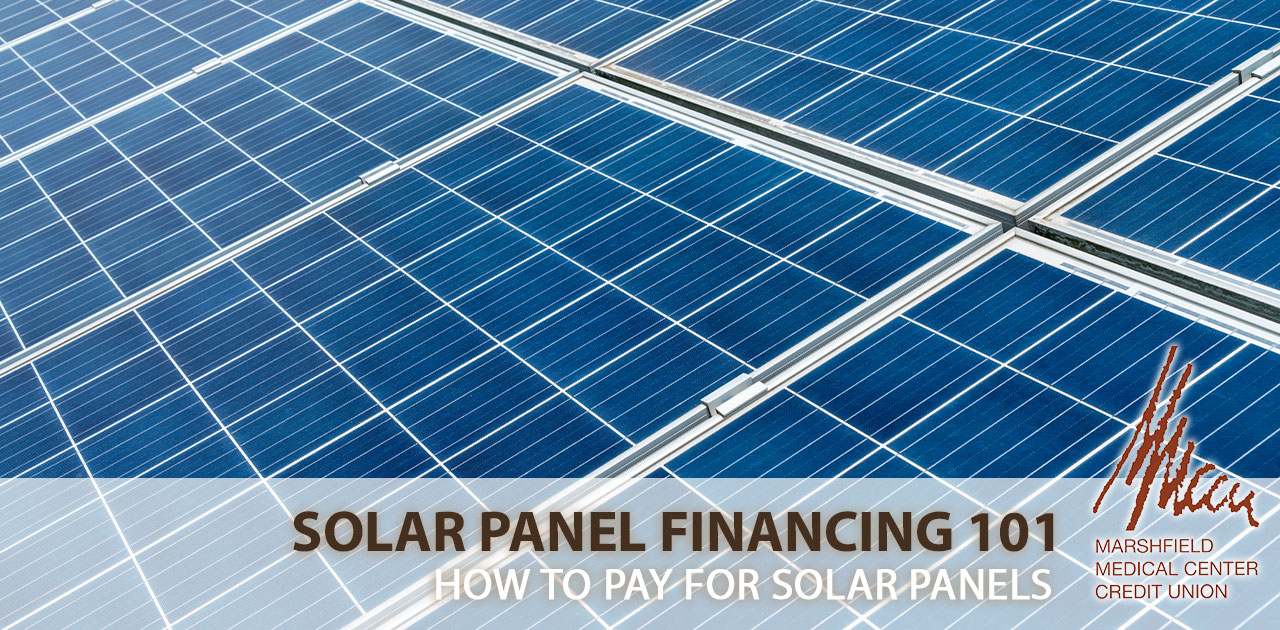Everything You Need to Know About Paying for Solar Panels
Solar panel financing options can vary depending on your location and the financial institutions available to you. MMCCU offers a loan program specific to Solar. Feel free to speak with our friendly team to learn which loan option is the best for your unique situation.
In general, here are a few common financing options for solar panel installations:
- Solar Loans: Some financial institutions (like MMCCU) offer specific loans for solar installations. These loans are designed to cover the upfront costs of purchasing and installing solar panels. MMCCU offers a unique option with flexible financing, meaning you pay only what the installer requires and not a lump sum up front. That way, if construction is delayed, you aren’t accruing extra interest.
- Home Equity Loans or Lines of Credit: If you have built up equity in your home, you can consider using a home equity loan or line of credit to finance your solar panel installation. These options allow you to borrow against the value of your home and can offer competitive interest rates. However, keep in mind that using your home as collateral means there is a risk of foreclosure if you fail to repay the loan.
- Solar Leases and Power Purchase Agreements (PPAs): In a solar lease or PPA arrangement, a third-party solar company installs and owns the solar panels on your property. You pay a fixed monthly lease payment or purchase the electricity generated by the panels at a predetermined rate. While you won’t own the panels in these arrangements, they can provide immediate cost savings with little or no upfront costs.
- Property-Assessed Clean Energy (PACE) Financing: PACE programs allow homeowners to finance energy-efficient and renewable energy upgrades, including solar installations, through their property tax assessments. PACE financing is repaid over a long term (typically 10-25 years) as part of your property tax bill. Eligibility and terms may vary depending on your location and the availability of PACE programs.
In some situations, there are tax credits that can make solar panel installations even more financially attractive:
- Federal Investment Tax Credit (ITC): The Federal ITC allows homeowners to deduct a percentage of the cost of their solar panel installation from their federal income taxes. Note that tax credit percentages and eligibility criteria can change over time, so it’s crucial to check for any updates or changes to programs and work with your accountant or tax preparer to learn more about and utilize these programs.
- State and Local Incentives: Besides the federal ITC, many states, municipalities, and utility companies offer additional incentives to promote solar energy adoption. These incentives can include additional tax credits, rebates, grants, or performance-based incentives. Research the incentives available in your specific location to maximize your financial benefits.
It’s always important to consult with a tax professional or financial advisor to understand the specific financial implications, tax credits, and financing options available to you based on your unique circumstances and location. They can provide personalized guidance on the most suitable financing method and help you navigate the complexities of tax credits and incentives related to solar panel installations.


